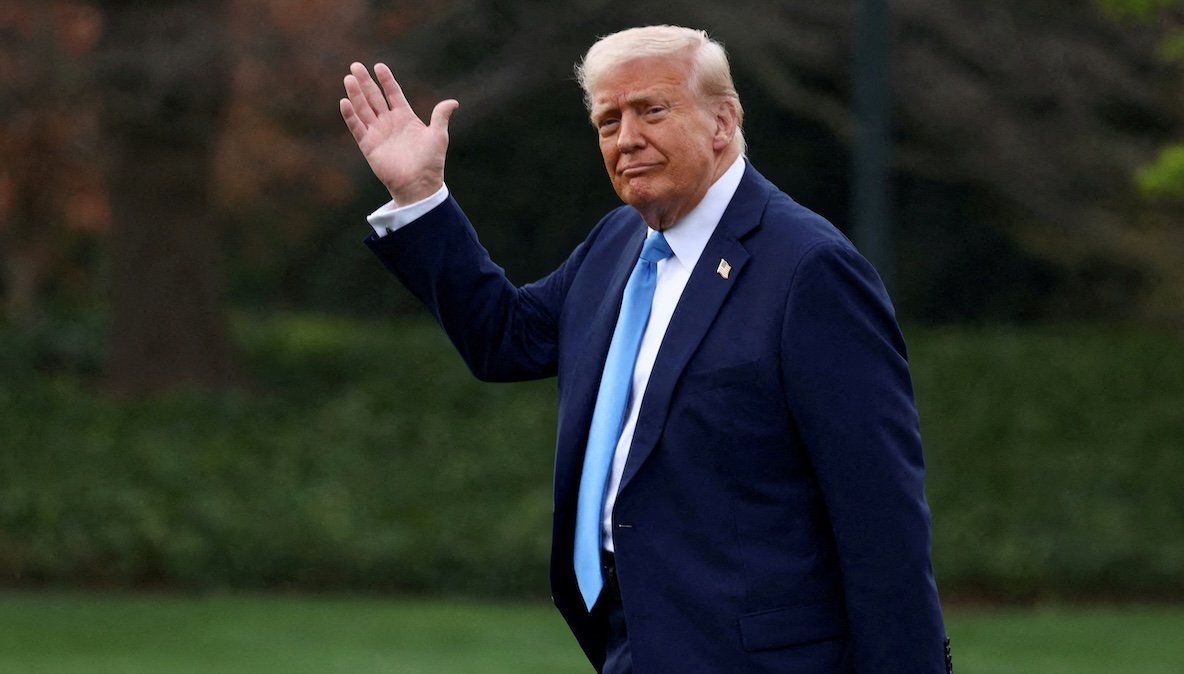Trump scolds Putin over Ukraine after Moscow greenlights his ambitions for Greenland
President Donald Trump waves as he walks before departing for Florida from the South Lawn at the White House in Washington, D.C., U.S., on March 28, 2025.
Is the bloom off the bromance between US President Donald Trump and Russian President Vladimir Putin? On Sunday, Trump took Putin to task over Russia’s foot-dragging on a ceasefire in Ukraine and threatened to tariff Russian oil and impose more sanctions on the country.
“If Russia and I are unable to make a deal on stopping the bloodshed in Ukraine, and if I think it was Russia’s fault ... I am going to put secondary tariffs on oil, on all oil coming out of Russia,” Trump said. “That would be, that if you buy oil from Russia, you can’t do business in the United States … There will be a 25% tariff on all oil, a 25- to 50-point tariff on all oil.” So far, there’s been no reaction from the Kremlin, but Trump said he would be talking with Putin this week.
A Greenland connection? Trump’s comments came a day after he reaffirmed his interest in acquiring Greenland for reasons of American and international security – something that Putin seems just fine with. At an Arctic policy forum in Murmansk on Thursday, Putin expounded on the “historical roots” of America’s interest in the island and said it was a matter that did not concern Russia.
But it may concern Ukraine. In the same speech, Putin said he would support a UN-led administration in Ukraine to hold new elections. And Kirill Dmitriev, Putin’s envoy for foreign investment and economic cooperation, said that while Moscow is open for investment cooperation in the Arctic with the US, “before deals can be done the war in Ukraine needs to end.”